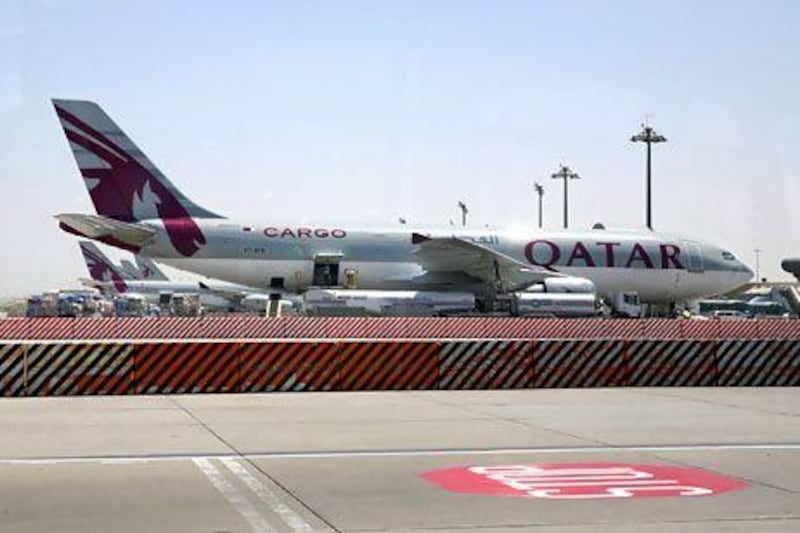Qatar Airways wants to become the world's second-biggest air cargo airline, according to Akbar Al Baker, the chief executive.
"Our vision is clear. We know where we are heading - ultimately to be among the top five air cargo operators in the world within five years," Mr Al Baker told the World Cargo Symposium in Doha yesterday.
"And when I say number five that is just what the planning people suggest. I would prefer to shorten the numbers of second or third place. Qatar Airways cargo is increasing by 20 per cent a year, so with the opening of our new cargo airport in April we expect a huge increase."
His ambition comes as the International Air Transport Association (Iata) reported this month that global air freight traffic rose 4.5 per cent in January, driven by growth in Asia and the Middle East.
"The air freight business is showing some encouraging signs. But it's too early to be overly optimistic," said Tony Tyler, Iata's chief executive.
Freight traffic had rebounded from December when it fell 0.5 per cent from a year earlier. However, Mr Tyler said the volume of goods shipped by air was still below levels reported in 2010 and 2011 and pointed to weakness in the global economic recovery.
The Middle East was the fastest-growing region in January, with air freight traffic there increasing 16.3 per cent from a year earlier after the addition of capacity and routes in the region.
"Air cargo is vital to the global economy, transporting more than US$5 trillion [Dh18.36tn] worth of goods annually, or more than a third of world trade by value," Mr Tyler told the Doha conference.
"And for airlines, it accounts for about 12 per cent of industry revenues. But like the rest of the airline industry, air cargo is a tough business. The last two years have been particularly difficult.
"Last year saw a 2 per cent decline in both air cargo demand and yields. There are early signs that an upturn is on the way. To seize the opportunity we must strengthen the industry's competitiveness."
To help its competitiveness Qatar Airways is updating its freighter fleet, acquiring three new A330 freighters by the end of this year, and phasing out its three ageing A300s.
Qatar's A330 freighters will carry 70 tonnes of cargo and have a longer range. They are capable of carrying 40 per cent more load than its current Airbus A300s.
The move will increase Qatar's freight capacity by 35 per cent to 530 tonnes per day.
The current top five airlines for freight, by tonnes carried, are Korean, Emirates, Cathay Pacific, United and China Airlines, according to the latest Air Cargo World rankings.
Qatar's competitors in the Middle East are also boosting their air cargo operations. In January SkyCargo, the freight division of Emirates, acquired three new Boeing 777F aircraft, each with a capacity of 103 tonnes.
Last month Etihad reported its air-freight figures for January had increased by 27 per cent from the previous January to 32,613 tonnes.
"The impressive tonnage figures for January were driven largely by increased demand into and out of China and India," said Kevin Knight, the chief strategy and planning officer for Etihad Airways. "Looking ahead, our forecasts point to continued strong demand in key exporting and importing markets such as China, India, South East Asia and Europe."
Earlier, Etihad had reported an annual tonnage growth of 19 per cent for last year.
The airline has ordered an additional three freighters to be delivered this year and next year - a Boeing B777F and two Airbus A330-200F aircraft.





